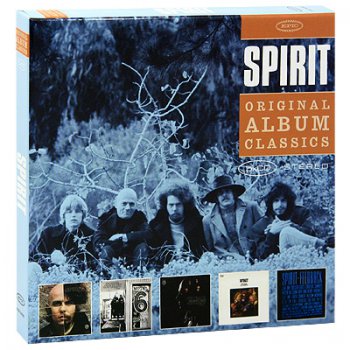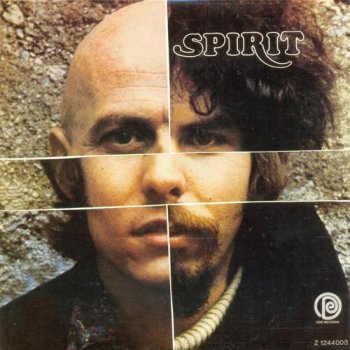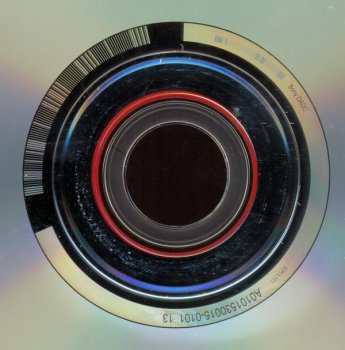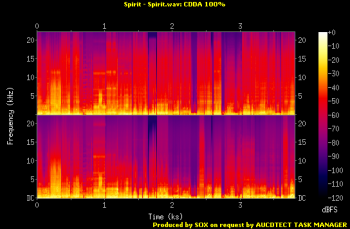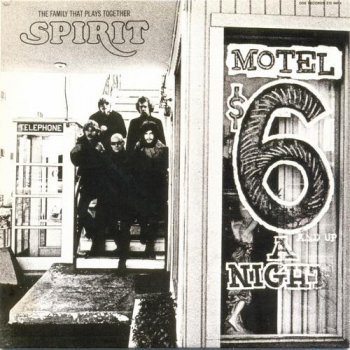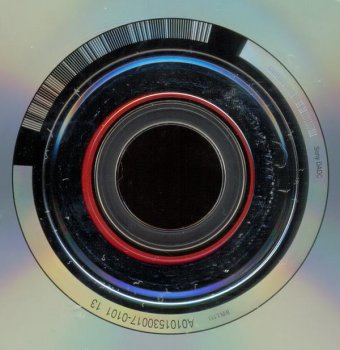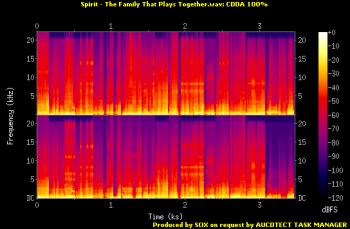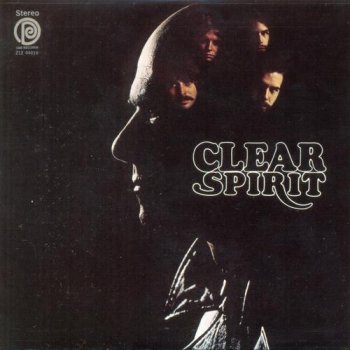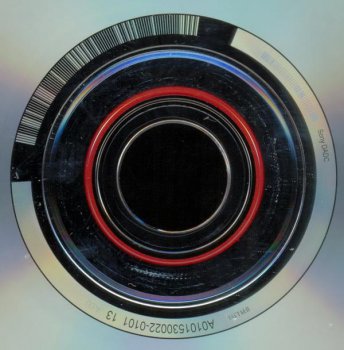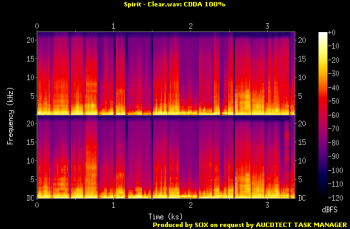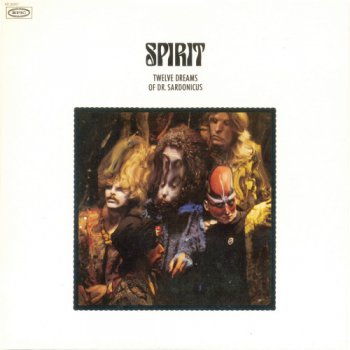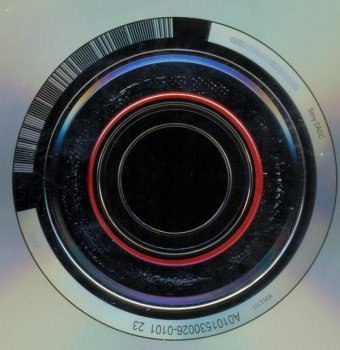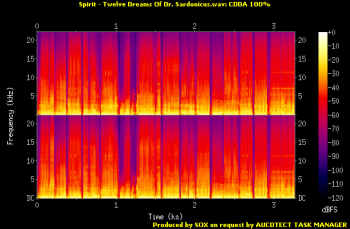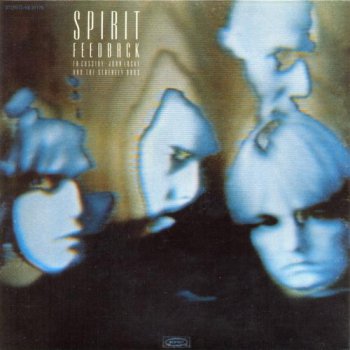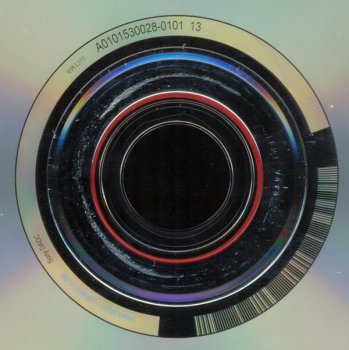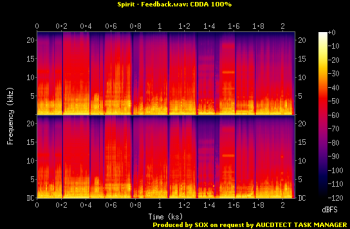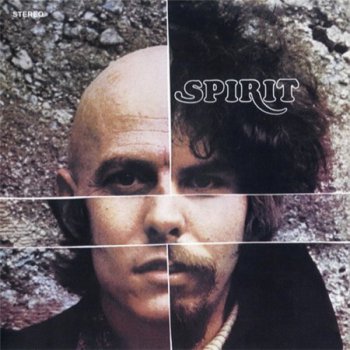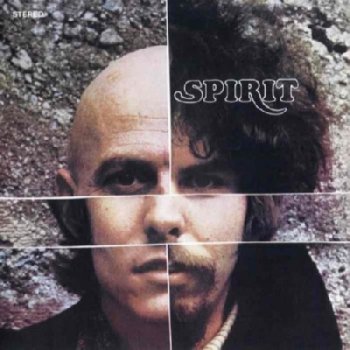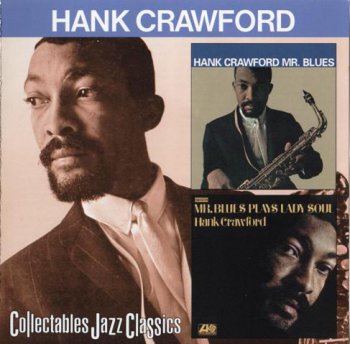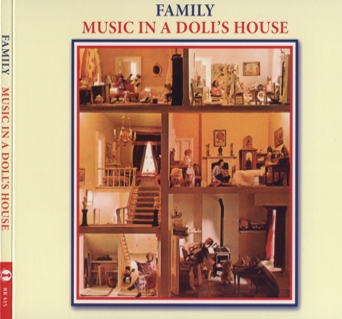SUPERMAX «Discography on vinyl» (9 × LP • 1St Press • 1977-1990)
Performer: SUPERMAX / スーパーマックス Album / collection: «Discography on vinyl» Label / country: ⒸⓅ 1977-1990 Atlantic / Elektra Records Source: Rip by bazar, Dymokust scans by inet… ⇒ Conversion 32/96kHz by KoGGaN™ Official DR value: •11•12•12•13•12•13•14•12•13• Catalog (Barcode): much… Genre / Style: Pop, Electronic, Funk / Soul, Reggae, Rock Fusion, Austrian Disco Year (info): 1977-1990 (9 × Original vinyl LP, 1St Press, Collection—) Format: WV (image + .cue) Bitrate: 32bit/96kHz Stereo Covers:
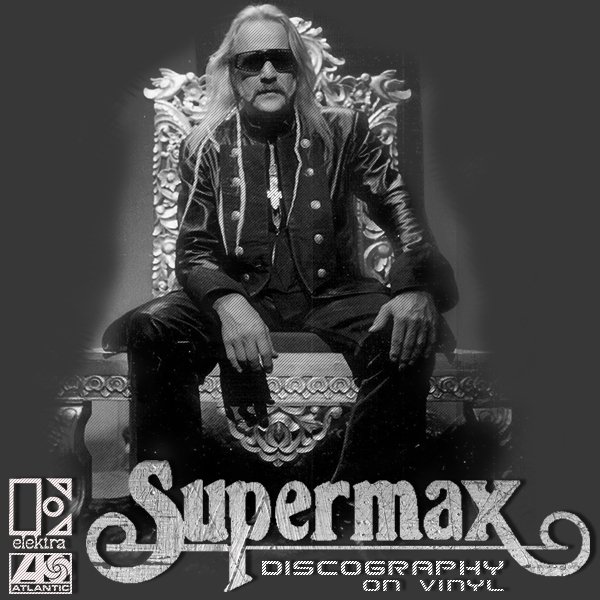
SUPERMAX «Discography on vinyl» (9 × LP • 1St Press • 1977-1990)
Performer: SUPERMAX / スーパーマックス Album / collection: «Discography on vinyl» Label / country: ⒸⓅ 1977-1990 Atlantic / Elektra Records Source: Rip by bazar, Dymokust scans by inet… ⇒ Conversion 32/96kHz by KoGGaN™ Official DR value: •11•12•12•13•12•13•14•12•13• Catalog (Barcode): much… Genre / Style: Pop, Electronic, Funk / Soul, Reggae, Rock Fusion, Austrian Disco Year (info): 1977-1990 (9 × Original vinyl LP, 1St Press, Collection—) Format: WV (image + .cue) Bitrate: 32bit/96kHz Stereo Covers:
03 05, 2024
DISCO 80's «Exclusive for "lossless-galaxy" Vinyl Collection» (363 × LP • Only Best Albums • 1975-2024)
Performer: Various Album / collection: «Disco 70’-80’-90’s» +++++ Series: Original Vinyl LP™ – Label / country: ⒸⓅ 1975-2024 Made in Europe, Japan, USA. Source: Rip by bazar, Dymokust …and many others… > Conversion 32/96kHz by KoGGaN™ Official DR value: •15•13•13•12•13•13•12•12•12•12•13•12•14•13•14•12•13•13•13•13•14• •12•14•13•12•13•14•11•16•12•12•13•13•12•15•13•15•12•12•13•13•13•13•13•13•14•14•12•13•12•

DISCO 80's «Exclusive for "lossless-galaxy" Vinyl Collection» (363 × LP • Only Best Albums • 1975-2024)
Performer: Various Album / collection: «Disco 70’-80’-90’s» +++++ Series: Original Vinyl LP™ – Label / country: ⒸⓅ 1975-2024 Made in Europe, Japan, USA. Source: Rip by bazar, Dymokust …and many others… > Conversion 32/96kHz by KoGGaN™ Official DR value: •15•13•13•12•13•13•12•12•12•12•13•12•14•13•14•12•13•13•13•13•14• •12•14•13•12•13•14•11•16•12•12•13•13•12•15•13•15•12•12•13•13•13•13•13•13•14•14•12•13•12•
03 05, 2024
Mark Knopfler - The Boy 2024
Исполнитель: Mark Knopfler Альбом: The Boy Жанр: Rock, Blues Rock, Country Rock Год: 2024 Страна: UK (Blyth, Northumberland) Лейбл: EMI Формат: FLAC (tracks) Official DR value: DR11 Разрядность: 24bit / 192kHz Stereo Размер: 872 MB Инфо: wiki Залито на: XFile (3% восстановление) «Exclusive for Lossless-Galaxy»
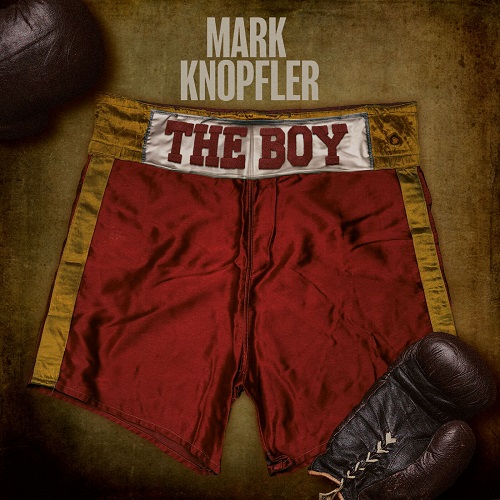
Mark Knopfler - The Boy 2024
Исполнитель: Mark Knopfler Альбом: The Boy Жанр: Rock, Blues Rock, Country Rock Год: 2024 Страна: UK (Blyth, Northumberland) Лейбл: EMI Формат: FLAC (tracks) Official DR value: DR11 Разрядность: 24bit / 192kHz Stereo Размер: 872 MB Инфо: wiki Залито на: XFile (3% восстановление) «Exclusive for Lossless-Galaxy»
03 05, 2024
Жанры
Lossless Galaxy Release
Русская музыка
--Поп
--Рок
--Панк
--Альтернатива
--Металл
--Рэп, Хип-Хоп, R'n'B
--Джаз и Блюз
--Фолк
--Шансон, Авторская песня
--СССР
Зарубежная музыка
--Pop
--Rock
--Hard Rock
--Progressive & Art-Rock
--Pop-Rock & Soft Rock
--Instrumental Rock
--Heavy, Traditional, Industrial Metal
--Power, Gothic, Sympho Metal
--Thrash, Speed, Groove, Modern Metal
--Death, Melodic Death, Doom, Dark Metal
--Black, Pagan, Folk, Viking Metal
--Alternative
--Punk
--Disco, Eurodance
--Rap, Hip Hop, R'n'B
--Reggae, Ska, Dub
--Jazz, Blues, Soul
--Folk, Country, Ethnic
--Electronic, Ambient, New Wave
--House, Techno, Trance
Другие жанры
--New Age, Relax, Meditative & Flamenco
--Chillout, Lounge, Downtempo, Trip-Hop
--Drum & Bass, Jungle, Breakbeat, IDM
--Classical / Классическая музыка
--Soundtrack
--Музыкальные сказки
Vinyl Rip
HI-Res / DVD-Audio / DTS
--SACD
--DSD
--DVD-Audio
Сборники Lossless-Galaxy
Альбомы 2022
Альбомы 2023
Теги
1st Press 2022 2023 2024 70... AOR Black Metal blues Blues Rock Classic Rock Death Metal Discography Doom Metal Exclusive for Lossless-Galaxy Folk Rock Gothic Metal Hard Rock Heavy Metal Hi-Res Japanese Edition Jazz Jazz Rock Limited Edition lossless Melodic Death Metal Melodic Rock Modern Electric Blues Pop Pop Rock Power Metal Prog Rock Progressive Metal Progressive Rock Psych Rock Psychedelic Rock Rock SACD Symphonic Metal Thrash Metal Дискографии от KoGGaN
 Автор: ALLexxess, 13 мая 2011, Комментариев: 3, Просмотров: 12 515
Автор: ALLexxess, 13 мая 2011, Комментариев: 3, Просмотров: 12 515Spirit: Original Album Classics ● 5CD Box Set Epic Records 2011
Lossless Galaxy Release
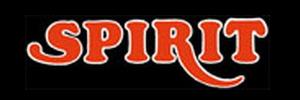
Spirit: Original Album Classics ● 5CD Box Set Epic Records 2011
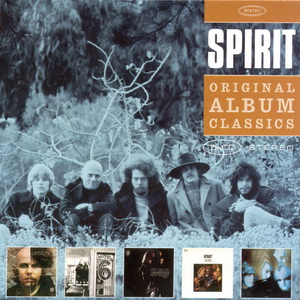
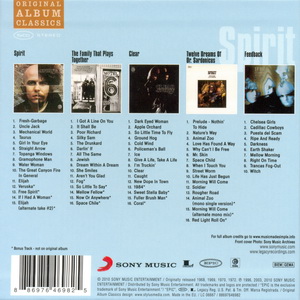
Исполнитель:
Spirit
Box:
Original Album Classics
(5CD Box Set Epic Records)
Альбомы:
1968 Spirit ● 1968 The Family That Plays Together
1969 Clear ● 1970 Twelve Dreams Of Dr. Sardonicus ● 1972 Feedback
Информация:
Sony Music / Legacy Recordings / Epic Records / Ode Records
© 2010 Sony Music Entertaiment
Originally released 1968, 1969, 1970, 1972
Ⓟ 1996, 2003, 2010 Sony Music Entertaiment
Catalog Box: 88697646982
Catalog CDs:
1968 Spirit - 88697646982CD1 / 1968 The Family That Plays Together - 88697646982CD2
1969 Clear - 88697646982CD3 / 1970 Twelve Dreams Of Dr. Sardonicus - 88697646982CD4
1972 Feedback - 88697646982CD5
Label Code: LC06667
Made in the EU
Original Artworks:
1968 Spirit - Ode Records US Z12 44003 (Mono) / Z12 44004 (Stereo)
1968 The Family That Plays Together - Ode Records US Z12 44014
1969 Clear - Ode Records US Z12 44016
1970 Twelve Dreams Of Dr. Sardonicus - Epic Records US KE 30267
1972 Feedback - Epic Records US KE 31175
Жанр: Rock / Psychedelic Rock
Год: 2010
Формат: FLAC / Level 8 (img + *cue + log, AccurateRip)
Качество: lossless
Covers: format PNG 600dpi, full scans
Размер:
• • • • • • • • • • • • • • • • • • • • • • • • • • • • • • • •
Каждый CD можно скачать отдельно
Each CD can be downloaded separately
• • • • • • • • • • • • • • • • • • • • • • • • • • • • • • • •
Залито на: FileSonic + Hotfile + Fileserve (3% восстановление)
Spirit
Box:
Original Album Classics
(5CD Box Set Epic Records)
Альбомы:
1968 Spirit ● 1968 The Family That Plays Together
1969 Clear ● 1970 Twelve Dreams Of Dr. Sardonicus ● 1972 Feedback
Информация:
Sony Music / Legacy Recordings / Epic Records / Ode Records
© 2010 Sony Music Entertaiment
Originally released 1968, 1969, 1970, 1972
Ⓟ 1996, 2003, 2010 Sony Music Entertaiment
Catalog Box: 88697646982
Catalog CDs:
1968 Spirit - 88697646982CD1 / 1968 The Family That Plays Together - 88697646982CD2
1969 Clear - 88697646982CD3 / 1970 Twelve Dreams Of Dr. Sardonicus - 88697646982CD4
1972 Feedback - 88697646982CD5
Label Code: LC06667
Made in the EU
Original Artworks:
1968 Spirit - Ode Records US Z12 44003 (Mono) / Z12 44004 (Stereo)
1968 The Family That Plays Together - Ode Records US Z12 44014
1969 Clear - Ode Records US Z12 44016
1970 Twelve Dreams Of Dr. Sardonicus - Epic Records US KE 30267
1972 Feedback - Epic Records US KE 31175
Жанр: Rock / Psychedelic Rock
Год: 2010
Формат: FLAC / Level 8 (img + *cue + log, AccurateRip)
Качество: lossless
Covers: format PNG 600dpi, full scans
Размер:
• • • • • • • • • • • • • • • • • • • • • • • • • • • • • • • •
Каждый CD можно скачать отдельно
Each CD can be downloaded separately
• • • • • • • • • • • • • • • • • • • • • • • • • • • • • • • •
Залито на: FileSonic + Hotfile + Fileserve (3% восстановление)
Диски упакованы в картонные конверты и вложены в коробку. Оформление картонных конвертов соотвествует оригинальному оформлению изданных ранее виниловых пластинок.
Box set in high quality, rigid carboard slipcase containing 5 'vinyl replica' sleeves as they were originally released. Contains: Spirit (1968), The Family That Plays Together (1968), Clear (1969), 12 Dreams of Dr. Sardonicus (1970) and Feedback (1972).

en.wikipedia.org
Spirit was an American jazz/hard rock/progressive rock/psychedelic band founded in 1967, based in Los Angeles, California. The original lineup of the group evolved from an earlier Los Angeles band, The Red Roosters, which included Randy California (guitars, vocals), Mark Andes (bass) and Jay Ferguson (vocals, percussion). With the addition of California's stepfather Ed Cassidy (drums), and keyboard player John Locke the new band was originally named the Spirits Rebellious (after a book by Khalil Gibran) but was soon shortened simply to Spirit. Randy California had also played with Jimi Hendrix (then known as Jimmy James) in Jimmy James and the Blue Flames in 1966. Cassidy was instantly recognizable by his shaven head (hence his nickname "Mr. Skin") and his fondness for wearing black. He was around twenty years older than the rest of the group (born in 1923). His earlier career was primarily in jazz and included stints with Cannonball Adderley, Gerry Mulligan, Roland Kirk, Thelonious Monk and Lee Konitz. He was a founding member of Rising Sons with Taj Mahal and Ry Cooder. The group's first album, Spirit, was released in 1968. "Mechanical World" was released as a single (it lists the playing time merely as "very long"). The album was a hit, reaching #31 on The Billboard 200 and staying on the charts for over eight months. The album displayed jazz influences, as well as using elaborate string arrangements (not found on their subsequent recordings) and is the most overtly psychedelic of their albums. They capitalized on the success of their first album with another single, "I Got A Line On You". Released in November 1968, a month before their second album, The Family That Plays Together, it became their biggest hit single, reaching #25 on the charts (#28 in Canada). The album matched its success, reaching #22. They also went on tour that year with support band Led Zeppelin, who were heavily influenced by Spirit - Led Zeppelin played an extended medley during their early 1969 shows that featured "Fresh Garbage" among other songs, Jimmy Page's use of a theremin has been attributed to his seeing Randy California use one that he had mounted to his amplifier, and it is now widely accepted that Page lifted the descending guitar figure from Spirit's instrumental "Taurus" for Led Zeppelin's signature tune "Stairway To Heaven". After this success, the group was asked by French film director Jacques Demy to record the soundtrack to his film, Model Shop and they also made a brief appearance in the film[citation needed]. Their third album, Clear, released in 1969, reached #55 on the charts. Spirit were offered the spot right before Jimi Hendrix at Woodstock[citation needed], but they were advised to turn it down and concentrate on a promotional tour for their third album. Record company managers felt that the festival would not be significant[citation needed], as it did not seem so at that time, and so they missed out on the massive international exposure that the festival and the subsequent film documentary generated. After the group undertook a promotional tour to support the album Twelve Dreams of Dr. Sardonicus, Ferguson and Andes left the group, forming Jo Jo Gunne. Bass player John Arliss initially took Andes' place, and California was still in the line-up, but he had suffered a head injury from a horse riding accident and was unable to tour. Bass player Al Staehely was recruited by Locke and Cassidy, and they toured briefly before deciding that they had to add a guitar player to do the music justice. Al's brother, John Christian Staehely auditioned for the band, and was quickly brought on board, with John departing the seminal Texas rock group "Krackerjack." Brothers John and Al, Cassidy and Locke, recorded the 1972 album Feedback in Columbia/Epic's Hollywood studios. It was a different turn for the group, showing more of a country-rock influence pervading their jazzier tendencies, but it also met with a mild commercial response, reaching #63 in the charts (the same position, ironically, that Sardonicus reached). The tour for Feedback proceeded very well for much of that year, but with musical roots that went different directions, eventually both Cassidy and Locke left the lineup, with the Staehely brothers recruiting Stu Perry to play drums. While the tour was well received critically, Spirit disbanded in mid-1973. The brothers would release their own album, Sta-Hay-Lee, in 1973. California, meanwhile, had recorded and issued his first solo album, Kapt. Kopter and the (Fabulous) Twirly Birds, in late 1972. It featured appearances by Noel Redding (as 'Clit McTorius'), Leslie Sampson (the drummer from Noel's band Road, as 'Henry Manchovitz') and Cassidy and had a hard rock sound. After launching a brief tour to support the album, a follow-up album was recorded with Cassidy, entitled The Adventures Of Kaptain Kopter And Commander Cassidy In Potato Land. Though Locke made a guest appearance, it was not intended as a Spirit album at the time. Epic however rejected the completed album, and California moved to Molokai, Hawaii. Epic Records decided to re-issue the group's first and third albums as a two-fer, entitled Spirit in 1973, in response to Sardonicus continuing to sell well, despite being off the charts. They also issued a compilation album, The Best Of Spirit, that year, as well as releasing the Sardonicus track "Mr. Skin" as a single. Surprisingly, "Mr. Skin" became a minor hit, and the two-fer hit the charts (along with The Best Of Spirit), and there was new demand for the group. Cassidy decided to capitalize on this, and put together an entirely new group for touring purposes, which lasted throughout the year.
ru.wikipedia.org
Spirit - американская рок-группа, образованная в Лос-Анджелесе в 1968 году и исполнявшая психоделик/прогрессив-рок, насыщенный элементами фолка, блюза, джаза и классической музыки. В период с 1968 по 1977 годы в Billboard 200 входили 11 альбомов Spirit. Творческое ядро коллектива составляли поющий гитарист Рэнди Калифорния и барабанщик Эд Кэссиди (англ. Ed Cassidy), их окружение постоянно менялось. Музыкальная критика высоко оценивала творчество Spirit, отмечая стилистическое разнообразие и оригинальность аранжировок. Музыка группы оказала заметное влияние на развитие прогрессивного рока (в частности, на ранних Curved Air). Меняя состав, Spirit продолжали выступать и записываться вплоть до 2 января 1997 года, когда Рэнди Калифорния утонул у побережья Гавайских островов. Первая встреча будущих основателей Spirit произошла ранней весной 1965 года, когда в ночном клубе Ash Grove, которым владел Эд Пёрл, выступила фолк-блюзовая группа Rising Sons, в составе которой (помимо Тадж-Махала и Рая Кудера), играл профессиональный джазовый барабанщик Эд Кэссиди. Вскоре последний близко сошёлся с Бернис Пёрл, сестрой владельца клуба, женился на ней и стал таким образом отчимом её сына, Рудольфа Вулфа, 14-летнего музыканта, живо интересовавшегося в те дни блюзом и фолком. В сентябре 1965 года Вулф и Кэссиди образовали группу Red Roosters, в состав которой вошли музыканты из Сан-Фернардино Вэлли: Джей Фергюсон (вокал, перкуссия) и Марк Андес (бас-гитара). Ансамбль распался, когда Кэссиди с семьёй весной 1966 года направился в поисках работы в Нью-Йорк. Здесь, в Манхэттене, Рэнди познакомился в музыкальном магазине с тогда еще малоизвестным гитаристом Джимми Джеймсом (впоследствии - Хендриксом) и получил от последнего приглашение войти в состав группы Jimmy James & the Blue Flames. Поскольку в группе уже играл один Рэнди (басист Палмер, урожденец штата Техас), Хендрикс стал Палмера звать «Рэнди Тексас», Вулфа - «Рэнди Калифорния». Так у начинающего музыканта появился сценический псевдоним, под которым он и вошел в историю. Летом 1966 года, когда Калифорния уже отыграл с Хендриксом несколько концертов, последнего заметил менеджер Чес Чендлер, бас-гитарист Animals. Оба вылетели в Англию, где образовали Jimi Hendrix Experience. Хендрикс попросил Рэнди отправиться вместе с ним, но тот в свои 15 лет не решился на такой шаг, а вместо этого вернулся с матерью и отчимом в родной штат. Здесь Рэнди Калифорния и Эд Кэссиди образовали группу Spirits Rebellious (названную так в честь книги религиозного мистика Халила Джебрана), в состав которой вошел также Джон Локк (John Locke), прежде игравший с Кэссиди в New Jazz Trio. Весной 1967 года Калифорния и Кэссиди встретились с Фергюсоном и Андесом, которые продолжали заниматься музыкой, будучи студентами UCLA. После распада Red Roosters они играли в Western Union (в числе участников которого был брат Марка гитарист Мэтт Андес), некоторое время Марк играл кроме того в Yellow Balloon и Canned Heat. Дуэт присоединился к Spirits Rebellious, после чего название группы сократилось до Spirit. В июне 1967 года с продюсером Барри Хансеном (позже переквалифицировавшегося в радиоведущего и получившего известность как Dr. Demento) группа записала демо (коммерческий релиз плёнки состоялся лишь 24 года спустя: он был включен в антологию Chronicles. 1967—1992) и прослушалась у продюсера Лу Адлера, известного по работе с The Mamas & the Papas. Адлер незадолго до этого продал свою компанию Dunhill Records (она стала частью ABC Records) и образовал новый лейбл Ode Records, имевшей дистрибутивный контракт с Epic Records. С Ode группа и подписала контракт в августе 1967 года. В январе 1968 года вышел дебютный альбом Spirit, с синглом «Mechanical World». Большая часть песен была написана Фергюсоном; Рэнди Калифорния был автором лишь инструментальной композиции «Taurus», но с ней вошел в историю (именно эта его гитарная партия вдохновила Джимми Пейджа на создание знаменитого акустического вступления к «Stairway to Heaven»). Альбом более полугода провел в американских чартах, поднявшись в сентябре до 40 места. В процессе продолжительного турне группа записала музыку к фильму французского режиссера Жака Деми «Model Shop» (русск. Ателье моделей), в котором снялась сама (альбом-саундтрек вышел на Sundazed Records лишь в 2005 году). В октябре 1968 года Spirit выпустили сингл «I Got a Line On You» (композицию Калифорнии), который в марте следующего года поднялся до 25-го места в Billboard Hot 100. На волне этого успеха и второй альбом The Family That Plays Together (декабрь 1968 года) достиг 22 места. Фергюсон снова выступил здесь в качестве основного автора: он написал 6 вещей; Калифорния был автором или соавтором пяти остальных. В июле 1969 года Spirit, подгоняемые жёстким графиком, выпустили третий альбом Clear. Сингл из него, «Dark Eyed Woman» (композиция Фергюсона и Калифорнии), успеха не имел. Часть материала пластинки являла собой продолжение саундтрека «Model Shop» и имела явно «фоновый» характер, что также не способствовало её успеху. Хитом обещал стать декабрьский сингл «1984», но в тот момент, когда он находился на 69 месте, радиостанции стали вдруг одна за другой снимать его с эфира, напуганные мрачным текстом (написанным по мотивам одноименного романа Оруэлла). Spirit получили предложение выступить в Вудстоке непосредственно перед Хендриксом, но по совету менеджеров решили отклонить приглашение. Последние считали, что фестиваль будет событием незначительным, и просчитались, упустив идеальный шанс представить группу всемирной аудитории. В начале 1970 года Адлер перевел свой лейбл под крышу A&M Records, но согласился оставить Spirit в Epic. С продюсером Дэвидом Бриггсом (приглашённым по рекомендации Нила Янга, с ним работавшего) Spirit записали четвёртый альбом, который впоследствии многие музыкальные критики сочли сильнейшим в истории группы. Работа над пластинкой прервалась на несколько месяцев после того, как Калифорния упал с лошади и оказался в клинике с серьёзной травмой черепа. Сингл «Animal Zoo» вышел в июле но не поднялся выше #97. Альбом Twelve Dreams of Dr. Sardonicus, содержание которого было сформировано совокупностью литературных сюжетов (объединенных общей темой хрупкости человеческой жизни) вышел в ноябре 1970 года. Он тут же обратил на себя внимание музыкальной критики изобретальной работой продюсера, и мастерским использованием Moog-синтезатора (тогда ещё редкого инструмента), а впоследствии приобрёл репутацию одного из самых серьезных концептуальных рок-произведений в истории. Зиму 1970 года и весну 1971-го Spirit провели в гастролях с материалом альбома, но он поднялся в чартах лишь до 63 места. Разочарованные отсутствием коммерческого успеха Фергюсон и Андес покигули состав и образовали новую группу Jo Jo Gunne, куда вошли также Мэтт Андес и ударник Кёрли Смит. В состав Spirit вошёл новый бас-гитарист Джона Арлисса (John Arliss), но тут Калифорния ушел из группы, чтобы начать сольную карьеру. Кэссиди и Локк пригласили к участию братьев Эла (бас) и Криса (гитара) Стаэили (англ. Al Staehely, Chris Staehely) и с ними записали альбом Feedback (1972). Пластинка, в которой ощущалось заметное влияние музыки кантри, вытеснившей джазовые элементы из аранжировок, достигла #63 — той же позиции, на которой остановился предшественник. Завершив гастроли в поддержку альбома, Кэссиди и Локк ушли из группы, после чего братья Стахейли с новым барабанщиком некоторое время гастролировали под старым названием Spirit. Тур в целом получил высокие оценки в прессе, но группа в начале 1973 году официально объявила о распаде. Братья в том же году выпустили собственный альбом, «Sta-Hay-Lee». Twelve Dreams of Dr. Sardonicus, хоть и покинул чарты, но продолжал звучать на радио (в 1976 году он стал «золотым»), а Epic перевыпустили альбом The Family That Plays Together, который в июле 1972 года вошел в чарты повторно. Тем временем Рэнди Калифорния подписал с Epic сольный контракт и выпустил осенью 1972 года сольный альбом Kapt. Kopter & the (Fabulous) Twirly Birds. С Кэссиди и новым басистом Ларри Найтом (англ. Larry «Fuzzy» Knight) он провел в Европе гастроли в поддержку своей пластинки. Трио, кроме того, подготовило концептуальный альбом Potatoland, но лейбл его отверг и Калифорния на некоторое время ушел из музыкального бизнеса, поселившись на Гаваях. Летом 1973 года на Epic вышел сборник The Best of Spirit, который вошел в списки, вместе с синглом «Mr. Skin» (из альбома Twelve Dreams of Dr. Sardonicus). Успешным был и перевыпуск альбомов Spirit и Clear под одной обложкой: именно он послужил толчком к воссоединению группы. Кэссиди отсудил у братьев Стахейли право на использование названия Spirit, призвал Найта, с группой приглашенных музыкантов вышел в турне (которое длилось с июля 1973 по апрель 1974 года), после чего отправился на Гавайи - за Калифорнией. Вместе с Марком Андесом (покинувши к тому времени Jo Jo Gunne) они возобновили совместные выступления (время от времени приглашая и Локка), а затем с новым басистом Барри Кином (англ. Barry Keene) записали двойной альбом Spirit of '76, который вышел уже на Mercury Records в мае 1975 года. За ним в октябре последовал Son of Spirit: обе пластинки имели более чем скромный коммеречский успех.
hardrockcafe.narod.ru
Эта психоделическая американская команда получила известность в основном благодаря мастерской игре гитариста Рэнди Калифорнии (Рэнди Крэйг Волф, р. 20 февраля 1951). Поиграв некоторое время в своей первой группе "Red roosters" Волф отправился в Нью-Йорк, где в одном из клубов познакомился с Джимми Джеймсом. Джимми и Рэнди понравились друг другу в плане игры на гитаре и решили поиграть вместе. Вот в их совместном проекте "The blue flames" последний и получил прозвище Калифорния. Набравшись опыта от молодого Хендрикса (а именно он и был тогда Джеймсом) Рэнди вернулся в Лос-Анджелес, где организовал новую группу, "Spiritis rebellious". В состав коллектива, название которого вскоре сократили до "Spirit", также вошли вокалист Джей Фергюсон, басист Марк Андес, клавишник Джон Лок и старый знакомый Волфа ударник Эд Кэссиди. После первой же демки, сделанной в 1967 году, квинтет получил контракт от "Ode Records". Первый же альбом, изданный на этом лейбле, настолько заворожил слушателей смесью психоделии, джаза и рока, что практически сразу сделался бестселлером. Второй лонгплей, "The Family That Plays Together", сопровождался хитовым синглом "I Got A Line On You", поразившим сердца американцев. В 1968-м группу пригласили для записи саундтрека к фильму "The Model Shop", большая часть музыки из которого на пластинку 1969 года "Clear Spirit". Дела у "Spirit" пошли хорошо и они подписались к мажорам, "Epic Records". Дебютом на этой фирме стал концептуальный альбом "The Twelve Dreams Of Dr. Sardonicus", очень хорошо принятый фанами группы, но неадекватно воспринятый критиками и почему-то незаслуженно имевший низкие продажи. Далее началась полоса неприятностей. Сначала Рэнди навернулся с лошади и повредил себе суставы, в результате чего запланированные гастроли были отменены. Затем в конце 1971 года из банды свалили Андес и Фергюсон, основавшие новый проект "Jo Jo Gunne". Некоторое время место басиста занимал Джон Арлисс, но через некоторое время команда оказалась распущена. Немного одумавшись Калифорния вновь собрал "Spirit" с Кэссиди, Локом и Элом Стэйели, а в 1972 году бросил своих коллег на произвол судьбы, занявшись сольной карьерой. Его попытались заменить братом Эла Кристианом, но записанный с ним альбом "Feedback" настолько разочаровал всех, что Кэссиди и Лок также хлопнули дверью. Братья Стэйели зацепили к себе Кози Пауэлла и прокатились с ним по Австралии, но из этого ничего хорошего не вышло. Тем временем Калифорния, успевший записать сольник, снова решил воссоздать "официальный" "Spirit" в компании с Кэссиди и Ларри Найтом на басу. В этой конфигурации был записан еще один концептуальный альбом, "Potatoland". Находившиеся с гастролями в Европе музыканты отправили плену с записью на "Epic", но там ее почему-то забраковали и положили на полку. Рэнди настолько убила эта новость, что он даже предпринял попытку самоубийства, бросившись с моста в Темзу. Его удалось спасти, но после этого он решил завязать с музыкой и отправился мыть тарелки в китайском ресторане. Кэссиди же со Стивеном Лайлом, Стивом Эдвардсом и Скоттом Шелли продолжил колесить по американским клубам под вывеской "Spirit". Спустя некоторое время Калифорния оправился от удара и присоединился к Кэссиди. Втроем с Барри Кином на басу они записали "Spirit of '76", изданный уже на "Mercury Records". Ну а для сессий следующего альбома "Further Along" в команду вернулись Андес и Лок. После выхода "Future Games" у "Spirit" вновь начался период разброд и шатаний. Музыканты расходились и сходились, попутно меняя лейблы. В 1981-м Лок ушел в "Nazareth", а Калифорния снова занялся сольной работой. Оригинальный состав группы собрался вместе в 1984 году, выпустив альбом "The Thirteenth Dream", состоявший как из нового материала, так и из римейков ранних записей. Рэнди и Эд потом еще несколько раз собирались вместе, чтобы сделать запись-другую или отыграть какой сейшн. Последней реинкарнацией "Spirit" был такой состав: Калифорния, Кэссиди, Мэтт Андес (гитара), Рэчел Андес (вокал), Стив "Либерти" Лория (бас). Эти музыканты выпустили альбом "California Blues", на котором присутствовала композиция "Look Over Yonder", написанная Калифорнией совместно с Хендриксом еще в далеком 1966-м. А 2 января 1997 года Рэнди Калифорния утонул у побережья Гавайев, успев перед этим спасти своего сына.
allmusic.com / Review by Richie Unterberger
Spirit's debut unveiled a band that seemed determine to out-eclecticize everybody else on the California psychedelic scene, with its melange of rock, jazz, blues, folk-rock, and even a bit of classical and Indian music. Teenaged Randy California immediately established a signature sound with his humming, sustain-heavy tone; middle-aged drummer Ed Cassidy gave the group unusual versatility; and the songs tackled unusual lyrical themes, like "Fresh Garbage" and "Mechanical World." As is often the case in such hybrids, the sum fell somewhat short of the parts; they could play more styles than almost any other group, but couldn't play (or, more crucially, write) as well as the top acts in any given one of those styles. There's some interesting stuff here, nonetheless; "Uncle Jack" shows some solid psych-pop instincts, and it sounds like Led Zeppelin lifted the opening guitar lines of "Taurus" for their own much more famous "Stairway to Heaven."
en.wikipedia.org
Spirit's self-titled debut album is one whose multifarious experimentalism owes a lot to the contemporary successes of The Beatles' Sgt. Pepper's Lonely Hearts Club Band and Pink Floyd's The Piper at the Gates of Dawn. It marked the humble beginnings and grand aspirations of its eponymous authors.
The eclecticism of Randy California's writing coupled Barrett's psychotropism with Morrison's West Coast bohemianism; and although the result proved somewhat inaccessible to the mainstream masses (at least commercially), it made the project ripe for underground FM airtime. The band would later curtail its psychedelia, focusing on a broader array of genres. This release was published first by Ode Records in 1968. It has since been reprinted by Sony, repackaged in compact-disc form and remastered from original analogue tapes.
Personnel / Spirit
* Mark Andes - Bass, Vocals
* Randy California - Bass, Guitar, Vocals
* Ed Cassidy - Percussion, Drums
* Jay Ferguson - Percussion, Keyboards, Vocals
* John Locke (musician) - Keyboards
214MB (1 Part) + 202MB (1 Part)
01 Fresh-Garbage
02 Uncle Jack
03 Mechanical World
04 Taurus
05 Girl In Your Eye
06 Straight Arrow
07 Topanga Windows
08 Gramophone Man
09 Water Woman
10 The Great Canyon Fire In General
11 Elijah
Bonus Tracks
12 Veruska
13 Free Spirit
14 If I Had A Woman
15 Elijah (Alternate Take #2)
EAC log - AccurateRip
audiochecker / auCDtect
Spectrum / Matrix
* Mark Andes - Bass, Vocals
* Randy California - Bass, Guitar, Vocals
* Ed Cassidy - Percussion, Drums
* Jay Ferguson - Percussion, Keyboards, Vocals
* John Locke (musician) - Keyboards
214MB (1 Part) + 202MB (1 Part)
01 Fresh-Garbage
02 Uncle Jack
03 Mechanical World
04 Taurus
05 Girl In Your Eye
06 Straight Arrow
07 Topanga Windows
08 Gramophone Man
09 Water Woman
10 The Great Canyon Fire In General
11 Elijah
Bonus Tracks
12 Veruska
13 Free Spirit
14 If I Had A Woman
15 Elijah (Alternate Take #2)
EAC log - AccurateRip
audiochecker / auCDtect
Spectrum / Matrix
Внимание! У Вас нет прав для просмотра скрытого текста.
allmusic.com / Review by Matthew Greenwald
On this, the second Spirit album, the group put all of the elements together that made them the legendary (and underrated) band that they were. Jazz, rock & roll, and even classical elements combined to create one of the cleanest, most tasteful syntheses of its day. The group had also improved measurably from their fine debut album, especially in the area of vocals. The album's hit single, "I Got a Line on You," boasts especially strong harmonies as well as one of the greatest rock riffs of the period. The first side of this record is a wonderful and seamless suite, and taken in its entirety, one of the greatest sides on Los Angeles rock. The CD reissue also boasts some excellent bonus tracks. "So Little to Say" is one of Jay Ferguson's finest compositions ever, and the jazz-inspired instrumentals such as "Fog" and "Space Chile" showcase pianist John Locke as one of the most inspired and lyrical players in the rock idiom to date. All in all, a classic album and a true landmark.
en.wikipedia.org
The Family That Plays Together, the second of four albums released by the original Spirit lineup, was marketed by Ode Records in 1968. Unlike its predecessor, Spirit, their self-titled and surreal debut, The Family That Plays Together evinces more greatly the band's ability for playing beyond the genre of psychedelic rock than within it. Tracks "It Shall Be" and "Silky Sam" demonstrate the ease with which the ensemble can incorporate jazz into their idiosyncratic form of rock, while "Jewish" and "Aren't You Glad" evidenced the band's competence in exploiting, to their advantage, both world music and jam rock respectively. "Poor Richard," "Jewish," and "All the Same" feature glorious double track lead breaks from guitarist California. The inspiration behind entitling The Family was derived from the stepson-stepfather relationship guitarist Randy California and percussionist Ed Cassidy shared. The album's arrangements were created by Marty Paich, who likewise arranged and conducted Spirit's eponymous debut album, as well as "Model Shop" (which was the soundtrack to a film starring Gary Lockwood - fresh from "2001: A Space Odyssey" - and "A Man And A Woman" star Anouk Aimee, directed by Jacques Demi) recorded after "Family" but not released until 2004, as well as "Clear." Paich's son David, who is one of the founding members of the Grammy-winning band Toto, was age 13 when he penciled the sheet-music/charts for the first ever for "Spirit." (Toto guitarist Steve Lukather, a long-time Spirit fan, produced a Jo Jo Gunne album with original members Ferguson and Andes, his brother Matt Andes, and Curley Smith in the 90s that was never released.) At some point after "Family's" first issue, the final mixes for the album were lost. Because of this, all subsequent CD releases by Sony, as well as the recent vinyl re-issue by Sundazed Records, are taken from new mixes made from the original multi-track tapes (the tracks that appeared on the Time Circle compilation were re-mixed as well, though the mixes differ) by Bob Irwin, Randy California and Ed Cassidy in 1996. Liner notes on the 1996 CD version state that it was "mixed and mastered by Vic Anesini, Sony Music Studios, New York." A general comparison between the original LP and the 1996 CD reissue makes this point obvious. Those who have more than a passing interest in the work should consider tracking down the original version on vinyl, as there are substantial differences in some places. The 1996 compact disc reissue also contains five bonus tracks. Two of these appeared on the 1991 Time Circle compilation, while the other three are previously unissued.
Personnel / Spirit
* Mark Andes - Bass, Vocals
* Randy California - Bass, Guitar, Vocals
* Ed Cassidy - Percussion, Drums
* Jay Ferguson - Percussion, Keyboards, Vocals
* John Locke - Keyboards
201MB (1 Part) + 171MB (1 Part)
01 I Got A Line On You
02 It Shall Be
03 Poor Richard
04 Silky Sam
05 The Drunkard
06 Darlin' If
07 Ail The Same
08 Jewish
09 Dream Within A Dream
10 She Smiled
11 Aren't You Glad
Bonus Tracks
12 Fog
13 So Little To Say
14 Mellow Fellow
15 Now Or Anywhere
16 Space Chile
EAC log - AccurateRip
audiochecker / auCDtect
Spectrum / Matrix
* Mark Andes - Bass, Vocals
* Randy California - Bass, Guitar, Vocals
* Ed Cassidy - Percussion, Drums
* Jay Ferguson - Percussion, Keyboards, Vocals
* John Locke - Keyboards
201MB (1 Part) + 171MB (1 Part)
01 I Got A Line On You
02 It Shall Be
03 Poor Richard
04 Silky Sam
05 The Drunkard
06 Darlin' If
07 Ail The Same
08 Jewish
09 Dream Within A Dream
10 She Smiled
11 Aren't You Glad
Bonus Tracks
12 Fog
13 So Little To Say
14 Mellow Fellow
15 Now Or Anywhere
16 Space Chile
EAC log - AccurateRip
audiochecker / auCDtect
Spectrum / Matrix
Внимание! У Вас нет прав для просмотра скрытого текста.
allmusic.com / Review by Matthew Greenwald
Although this album may not be seen as the definitive Spirit statement, it has several moments of brilliance that prove what a revolutionary band they were. Coming off of the success of The Family That Plays Together and "I Got a Line on You," the group entered the studio with Lou Adler once again in the producer's chair. Unfortunately, the group appeared to be beginning to fragment, and it shows on this uneven but ultimately fine album. "Dark Eyed Woman" opens the album with promise, and it is indeed one of Spirit's hardest-rocking studio performances. Randy California's inspired guitar solo is one of the finest performances of the period. The riff and general feel of the track (right down to the siren sound effects) were borrowed by Traffic on "Shoot Out at the Fantasy Factory." The record tends to go downhill from there (primarily due to some uninspired songwriting), but is not without its high points, like "Cold Wind" and the awesome closer "New Dope in Town."
en.wikipedia.org
Clear was the third Spirit album, written largely in the wake of their work on the soundtrack to the 1968 film Model Shop. Several of the band members have said that they felt there wasn't enough time for developing the album after releasing two albums in 1968, recording a soundtrack and constantly touring, but a growing number of fans feel that it is one of their finest, if not the finest, album the group would ever make. Possibly because of the rushed work on the album, there is a larger reliance upon instrumental work and the jazz backgrounds of several members than any of their other albums, perhaps most exemplified by the three instrumental pieces penned by John Locke. It also features their sound gaining depth and sprawling out even more than it previously had, as they even attempt everything from the bluesy "So Little Time To Fly" to tightly constructed multi-part songs like "Dark Eyed Woman" and "New Dope In Town". Stylistically, "Clear" is a precursor to the band's next album, Twelve Dreams of Dr. Sardonicus. "So Little Time To Fly" was covered by legendary British rockers Status Quo as "Time to Fly". The original Ode Records recording of Clear would be later restored by Sony in 1996. The second edition includes both sides of the 1984 single, the song "Fuller Brush Man" (which hasn't appeared elsewhere), and a piece entitled "Coral", which is also available on the Model Shop soundtrack but is present here in an elaborately produced version.
Personnel / Spirit
* Mark Andes - Bass, Vocals
* Randy California - Bass, Guitar, Vocals
* Ed Cassidy - Percussion, Drums
* Jay Ferguson - Percussion, Keyboards, Vocals
* John Locke - Keyboards
201MB (1 Part) + 140MB (1 Part)
01 Dark Eyed Woman
02 Apple Orchard
03 So Little Time To Fly
04 Ground Hog
05 Cold Wind
06 Policeman's Ball
07 Ice
08 Give A Life, Take A Life
09 I'm Truckin'
10 Clear
11 Caught
12 New Dope In Town
Bonus Tracks
13 1984
14 Sweet Stella Baby
15 Fuller Brush Man
16 Coral
EAC log - AccurateRip
audiochecker / auCDtect
Spectrum / Matrix
* Mark Andes - Bass, Vocals
* Randy California - Bass, Guitar, Vocals
* Ed Cassidy - Percussion, Drums
* Jay Ferguson - Percussion, Keyboards, Vocals
* John Locke - Keyboards
201MB (1 Part) + 140MB (1 Part)
01 Dark Eyed Woman
02 Apple Orchard
03 So Little Time To Fly
04 Ground Hog
05 Cold Wind
06 Policeman's Ball
07 Ice
08 Give A Life, Take A Life
09 I'm Truckin'
10 Clear
11 Caught
12 New Dope In Town
Bonus Tracks
13 1984
14 Sweet Stella Baby
15 Fuller Brush Man
16 Coral
EAC log - AccurateRip
audiochecker / auCDtect
Spectrum / Matrix
Внимание! У Вас нет прав для просмотра скрытого текста.
allmusic.com / Review by Richie Unterberger
Although Twelve Dreams of Dr. Sardonicus has the reputation of being Spirit's most far-out album, it actually contains the most disciplined songwriting and playing of the original lineup, cutting back on some of the drifting and offering some of their more melodic tunes. The lilting "Nature's Way" was the most endearing FM standard on the album, which also included some of Spirit's best songs in "Animal Zoo" and "Mr. Skin." (The 1996 CD reissue has four bonus tracks, though these are on the nonessential side: mono versions of "Animal Zoo" and "Morning Will Come," the 1970 single "Red Light Roll On," and the previously unissued "Rougher Road.")
en.wikipedia.org
Twelve Dreams of Dr. Sardonicus is an album released in 1970 by the psychedelic rock ensemble Spirit. Produced by David Briggs, who is best known for his work with Neil Young, and whom they chose on Young's recommendation. The original LP was released in 1970 by Epic shortly before the original group disbanded.
This diverse yet cohesive effort is a sci-fi-based, loose concept album. The album's second song is the key track "Nature's Way", the most notable hit (along with "I've Got a Line on You" - #28 in Canada) the band would ever produce. "Mr. Skin" also became a hit single in the U.S., three years after the album's release.
The album also includes several other less well-known tunes which are considered to have had an impact on the genre of experimental rock in the United States.
The album influenced many other groups - the track "Morning Will Come" presaged the emerging glam rock trend and sounds strikingly similar to the music of Marc Bolan and T. Rex, and the piano figure that opens the instrumental track "Space Child" closely resembles the piano intro of the 1978 Steely Dan hit "FM". A modern nod to Spirit was given by Sam Beam of lo-fi indie band Iron and Wine. The breakdown in "Wolves (Song of the Shepherd's Dog)" matches that in "Prelude-Nothing to Hide". Just as in previous attempts, Spirit fused aspects of jazz and folk together with their traditional rock stylings, but also introduced added elements of space rock, or popular music's science-fiction subset. This innovative LP is also notable as one of the first rock albums to use the newly-developed Moog synthesizer. The album was re-issued on CD in 1996 by Sony in remastered form, with bonus tracks.
Personnel / Spirit
* Mark Andes - Bass, Vocals
* Randy California - Bass, Guitar, Vocals
* Ed Cassidy - Percussion, Drums
* Jay Ferguson - Percussion, Keyboards, Vocals
* John Locke - Keyboards, Art Direction
201MB (1 Part) + 152MB (1 Part)
01 Prelude - Nothin' To Hide
02 Nature's Way
03 Animal Zoo
04 Love Has Found A Way
05 Why Can't I Be Free
06 Mr. Skin
07 Space Child
08 When I Touch You
09 Street Worm
10 Life Has Just Begun
11 Morning Will Come
12 Soldier
Bonus Tracks
13 Rougher Road
14 Animal Zoo (Mono Single Version)
15 Morning Will Come (Alternate Mono Mix)
16 Red Light Roll On
EAC log - AccurateRip
audiochecker / auCDtect
Spectrum / Matrix
* Mark Andes - Bass, Vocals
* Randy California - Bass, Guitar, Vocals
* Ed Cassidy - Percussion, Drums
* Jay Ferguson - Percussion, Keyboards, Vocals
* John Locke - Keyboards, Art Direction
201MB (1 Part) + 152MB (1 Part)
01 Prelude - Nothin' To Hide
02 Nature's Way
03 Animal Zoo
04 Love Has Found A Way
05 Why Can't I Be Free
06 Mr. Skin
07 Space Child
08 When I Touch You
09 Street Worm
10 Life Has Just Begun
11 Morning Will Come
12 Soldier
Bonus Tracks
13 Rougher Road
14 Animal Zoo (Mono Single Version)
15 Morning Will Come (Alternate Mono Mix)
16 Red Light Roll On
EAC log - AccurateRip
audiochecker / auCDtect
Spectrum / Matrix
Внимание! У Вас нет прав для просмотра скрытого текста.
allmusic.com / Review by Joe Viglione
Feedback is one of the strangest happenings in rock, more dramatic than Michael MacDonald taking over the Doobie Brothers, but more successful artistically than it was financially, and a chapter of the group that is sadly forgotten. The original band was produced by Lou Adler and built around guitar prodigy Randy California, and a bit of history is in order to understand this hybrid project. David Briggs, producer of Kathi MacDonald, Alice Cooper's Easy Action, and Neil Young, helped the band forge their classic Twelve Dreams of Dr. Sardonicus and was retained for this follow-up. William Ruhlmann's liner notes to Spirit's Time Circle Epic/Legacy release notes that Randy California resigned from the group at this point. Mark Andes and Jay Ferguson formed Jo Jo Gunne with Curly Smith, and Smith's friends, the Staehely Brothers, joined Cassidy and company. What Ed Cassidy and keyboard player John Locke created with producer David Briggs was a phenomenal reinvention of Spirit, which worked, sometimes better than the original group. Bassist/vocalist Al Staehely wrote the music, with guitar chores and backing vocals by his brother J. Christian Staehely. "Witch," the final track on the disc, is typical of this new Spirit sound, a fusion of pop/jazz/rock with a dab of country. It would have been a perfect blend for Randy California to step back into, though his ego might have been the stumbling block here. In concert, this version of Spirit was serious and precise, playing with a cool efficiency. David Briggs was the perfect guy to oversee this project, allowing the musicians their space and developing a true counterpart to The Twelve Dreams of Dr. Sardonicus, considered by many to be the band's highpoint. The cover is in eerie aqua blue with the faces looking like spirits peering out of a distorted television. The gatefold contains a band photo and a smart evolutionary image for this eclectic and underrated West Coast band. Here's the clincher: musically, some of the best work on Feedback are the two instrumentals by keyboard player John Locke, "Puesta Del Scam" and "Trancas Fog-Out," fragments of the original "Spirit" performed by this new quartet. The stuff is brilliant, and that it was excised from Time Circle is a pity. It was this writer who put Epic/Legacy in touch with Randy California in the development of 1991's Time Circle compilation project, and certainly the elegant "Darkness," the third John Locke title, deserved to be included on that double disc, and some representation of this remarkable work would have been appropriate rather than nine whopping cuts from The Twelve Dreams of Dr. Sardonicus. Jo Jo Gunne guitarist Matthew Andes (brother of Spirit's Mark Andes) co-wrote "Mellow Morning" with Al Staehely, and it, along with "Right on Time" and "Ripe and Ready," all display the Spirit vibe, even hinting at some Jo Jo Gunne, as strange as that may seem. The Cassidy/Locke/Staehely/Staehely combo added enough jazz to Spirit to temper the all out assault that was Jo Jo Gunne, and therein lies the difference. This is not David Bowie's ex-drummer and bassist forming the Spiders From Mars; keep in mind that Ed Cassidy was not only the band's insignia with his Yul Brynner look, he was this group's spiritual leader. As Randy California's step-dad, it's a shame he didn't get more firm with the boy and demand they all be "the family that plays together." Had the Staehely brothers and John Locke stayed on board for Cassidy and Randy California's next project, the erratic Potatoland disc may have mutated into something totally brilliant. The best of Al Staehely, John Locke, and Randy California would have been truly something. Feedback is a solid performance and remarkable album which deserves its place in the Spirit catalog, and not the status of bastard son. It is a legitimate Spirit project and it is very, very good.
en.wikipedia.org
Feedback is the 5th album by the rock & roll band Spirit. Released in 1972, it was the first Spirit album without original members Jay Ferguson and Mark Andes, and it was also the only Spirit album that did not feature Randy California performing on it, as California had left the group to pursue a solo career. Feedback reached the same chart position on the U.S. Billboard Magazine album charts as its predecessor, Twelve Dreams of Dr. Sardonicus. Feedback was the only Spirit album to feature the John and Al Staehely as band members. Musically it was a different turn for the band, in favor of a country influenced hard rock style and lyrics mostly dealing with conventional male-female love topics, with only the tracks "Darkness" and the instrumentals "Puesta Del Scam" and "Trancas Fog-Out" recalling Spirit's earlier psychedelic rock. Although the album wasn't widely heard in later years, it has finally surfaced on cd and has received some extremely satisfying notices. The Feedback tour saw the remaining original members (Locke and Cassidy) leave the band during the tour, and Chris and Al Staehely regrouped the band under a new name, Sta-Hay-Lee, recording another album self-titled under the Sta-Hay-Lee name in 1972. Chris Staehely would later join Jay Ferguson's band Jo Jo Gunne. Al Staehely, already a lawyer at the time, went on to become a full time entertainment lawyer.
Personnel / Spirit
* Ed Cassidy - drums
* John Locke- keyboards
* Al Staehely - bass, vocals
* J. Christian Staehely (credited as Chris Staehely) - guitar, backup vocals
Covers Box
201MB (1 Part) + 113MB (1 Part)
01 Chelsea Girls
02 Cadillac Cowboys
03 Puesta Del Scam
04 Ripe And Ready
05 Darkness
06 Earth Shaker
07 Mellow Morning
08 Right On Time
09 Trancas Fog-Out
10 Witch
EAC log - AccurateRip
audiochecker / auCDtect
Spectrum / Matrix
* Ed Cassidy - drums
* John Locke- keyboards
* Al Staehely - bass, vocals
* J. Christian Staehely (credited as Chris Staehely) - guitar, backup vocals
Covers Box
201MB (1 Part) + 113MB (1 Part)
01 Chelsea Girls
02 Cadillac Cowboys
03 Puesta Del Scam
04 Ripe And Ready
05 Darkness
06 Earth Shaker
07 Mellow Morning
08 Right On Time
09 Trancas Fog-Out
10 Witch
EAC log - AccurateRip
audiochecker / auCDtect
Spectrum / Matrix
Внимание! У Вас нет прав для просмотра скрытого текста.
Похожие новости:
Комментарии (3)
Добавить комментарий!
Информация
Посетители, находящиеся в группе Гости, не могут оставлять комментарии к данной публикации.
